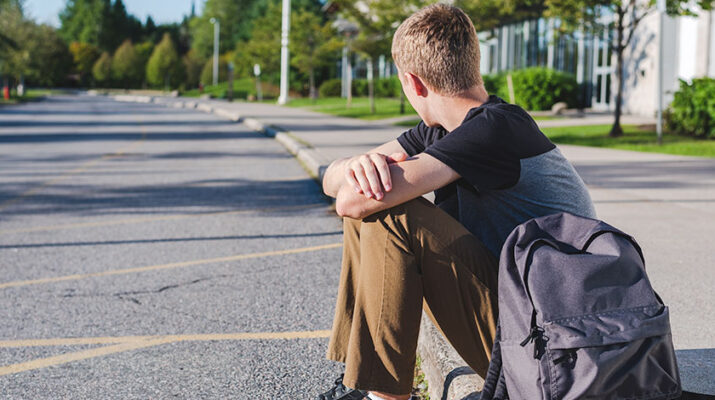Prepare your kids for what it will be like going back to school
Megan Plete Postol
Back to school can be a stressful time for school-age children under normal circumstances.
But, this September could bring waves of anxiety in even the most resilient students.
The COVID-19 pandemic has made last two years unpredictable. Changing guidelines, fear of illness and hindrance of interactions has stripped students of many of the social benefits that school once provided. Parents can play an important role in helping students navigate the stress of going back to school.
Jodi Ann Mullen, a professor at SUNY Oswego in the counseling and psychological services department, is the coordinator of the mental health counseling program and graduate certificate program in play therapy. She is also the director of Integrative Counseling Services, with various locations in Central New York. The best way for parents to help children feel calm in an unstable world is to provide stability at home, Mullen said.
“Transitions are stressful regardless of what age you are,” she said. “The best way for parents to minimize the stresses of going to school or back to school in the fall is to prepare them for what it will be like.”
Start talking about the back to school transition long before it arrives. Think about the big changes and the small changes that will occur in the student’s life. Make space in the child’s life for the changes the season will bring.
“Parents can start talking to their children during the summer about what they can expect before school, during school and after school,” Mullen said. “Routine, stability and consistency are the anecdotes of stress which is one of the reasons the pandemic radiated so much anxiety. I encourage parents to build consistency into the way their family functions year round and especially when things are less predictable during transitions.”
Nicholas J. Westers, a clinical psychologist at Children’s Health, provided more tips on childrens.com.
Help children focus on tangible actions, he suggested, such as hand washing, wearing a face mask and practicing social distancing. This provides an element of control in a mostly uncontrollable situation. Support children’s physical health by ensuring they get enough sleep, are active and eating healthy food to support both a healthy body and healthy mind. Encourage kids to do activities that they enjoy, such as sports, reading, playing games or whatever their personal favorite activities are.
People, children included, exhibit stress and anxiety in different ways. Parents know their children best, so they should be on the lookout for changes in behavior.
Anxiety (and depression) frequently look like irritability in school-aged children, Mullen said.
“If your child seems more moody, ‘off’ or shows regression behaviors like being clingy or using baby talk; check in with them,” she said. “Rather than asking what’s wrong, ask how you can help. If they become impaired in peer or family relationships, academics or activities it’s time to consult a mental health professional.”
Other signs that caregivers can look out for are increased defiance or irritability, sleep disturbances, changes in appetite, struggling to concentrate on tasks, sadness, crying, physical manifestations such as nausea, muscle tension or dizziness, less energy, and refusal or reluctance to go back to school.
Provide children with stress management tools. Teaching them breathing exercises can be beneficial. They can learn to do the breathing exercises if (or when) they feel anxious, whether that is at school or anywhere else. Many anti-anxiety breathing technique tutorials can be found online.
Mullen provides an abundance of guidance and tips on her podcast, which can be accessed at www.blogtalkradio.com/freakishlywellbehavedkids, and in her book “Raising Freakishly Well Behaved Kids: 20 principles for being the parent your child needs,” which can be ordered from her website, www.integrativecounseling.us/product-page/raising-freakishly-well-behaved-kids-20-principles.
She also suggests that parents check in on their own mental health and practice self-care. Children can feel tension in caregivers and it can cause them to act-out.
“Be sure to give enough time for your child to adjust,” she said. “If you are anxious and stressed your child will pick up on that, take care of yourself so you can care for them as well as modeling valuing self.”

